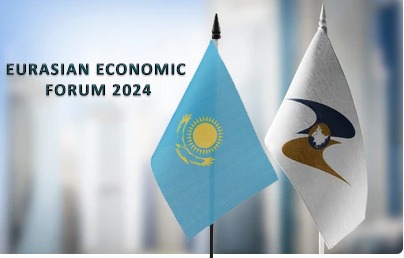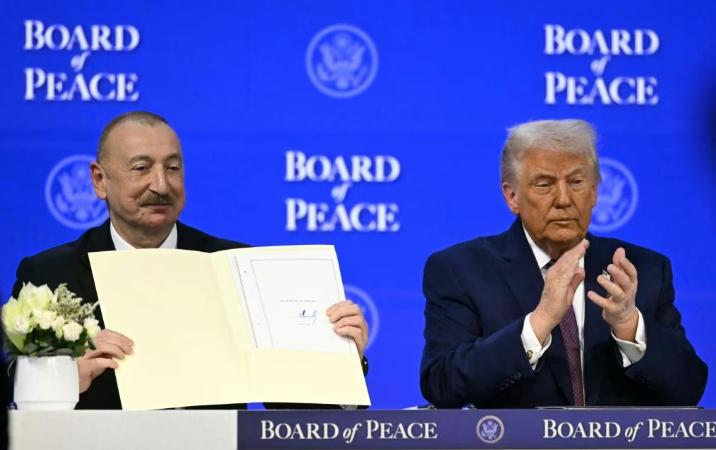Kazakhstan has emerged as a leading advocate for broader digital integration within the Eurasian Economic Union (EAEU), championing new initiatives at the recent Eurasian Economic Forum held in Yerevan from 30 September to 1 October 2024. During the forum, Bakytzhan Sagintayev, Chairman of the Eurasian Economic Commission (EEC), presented the ambitious Digital Union initiative, which underscores the importance of deeper economic integration in the digital domain. Sagintayev emphasized that this initiative would bolster cooperation across the EAEU by aligning regulatory frameworks, ensuring synchronization of digital platforms, and expanding digitalization across all four fundamental freedoms—goods, capital, services, and people.
Kazakhstan’s active role at the forum, as voiced by Prime Minister Olzhas Bektenov, signals the country’s deep commitment to fostering digitalization. Kazakhstan has positioned itself as a regional leader in digital transformation, contributing to the creation of an integrated information system within the EAEU. This system, designed to enable seamless interstate data exchanges, plays a pivotal role in advancing the EAEU’s goals of improving cooperation and transparency among member states. As part of this strategy, the government is integrating multi-platform public service delivery, allowing businesses to incorporate government services into their platforms and ecosystems. One of the standout developments in Kazakhstan’s digitalization efforts is the Invisible Government initiative, which seeks to centralize citizen needs in government policy. The government collects vast amounts of data on family well-being and uses it to proactively offer state services and support to families in difficult situations. This data-driven approach is part of a broader effort to modernize governance and ensure that public services are more accessible and equitable. The country is making significant strides in developing digital infrastructure, with the majority of settlements with populations of over 250 people already connected to broadband internet.
Digital Union Initiative
At the core of Kazakhstan’s digital strategy is the vision of a “Digital Union” within the EAEU. During the plenary session of the forum, Bakytzhan Sagintayev, chairman of the Eurasian Economic Commission (EEC), unveiled the initiative, highlighting the tangible benefits of deeper economic integration through digital platforms. This proposal comes at a time when the demand for digital transformation is reshaping economies, and the EAEU must adapt to remain competitive on the global stage.
The concept of the Digital Union is founded on three key principles: regulatory and infrastructure compatibility, synchronization of national digital platforms, and the comprehensive digitalization of the four fundamental freedoms—goods, capital, services, and people. Each member state is expected to adapt to the digitalization process based on their readiness, ensuring flexibility while maintaining collective progress. This framework aims to bridge the digital gaps between EAEU countries, ensuring that no member state is left behind in the global digital race. Kazakhstan has also been making strides in e-government development, rising significantly in global rankings for its provision of online services. The country’s “Invisible Government” initiative, which puts citizens’ needs at the center of government policy, is a testament to its human-centric approach to governance. This initiative uses digital tools to proactively address the needs of vulnerable populations, such as identifying families in difficult life situations through a data-driven methodology based on UN standards.
Kazakhstan’s Role in Driving Regional Digitalization
The Astana Hub, for instance, has become a critical player in the region, supporting more than 1,000 start-ups from over 10 countries and creating over 16,000 jobs. These initiatives are backed by strong institutional frameworks, including partnerships with major tech companies like Google, which have contributed to the activation of Kazakhstan’s IT market. Kazakhstan’s innovation ecosystem, which includes the Autonomous Cluster Fund “Park of Innovative Technologies,” has financed numerous projects in areas such as Industry 4.0, industrial safety, and metallurgy, further solidifying the country’s position as a regional hub for digital transformation.
Kazakhstan’s progress in e-government has also been noteworthy. The country’s human-centric approach to governance and its dedication are making public services more accessible and efficient through digital means. Kazakhstan’s vision for broader digital integration extends beyond its borders. At the Eurasian Economic Forum, Prime Minister Smailov emphasized the need for EAEU member states to work together to attract investment for digital infrastructure development. This cooperation would create new opportunities for establishing high-speed data channels, linking the region’s digital infrastructure with international corridors.
In line with this vision, Kazakhstan is actively working on the transition to electronic transport documents within the EAEU. By converting paper-based permit forms into digital formats, Kazakhstan aims to reduce corruption risks, increase the transparency of trade turnover, and help businesses optimize their costs. The digitalization of cross-border trade is seen as a critical component of the EAEU’s broader integration agenda, with Kazakhstan playing a leading role in driving these efforts forward.
Kazakhstan’s proactive stance at the Eurasian Economic Forum underscores its commitment to advancing digital integration within the EAEU. The Digital Union initiative, backed by Kazakhstan’s own digital transformation efforts, represents a significant step towards deeper cooperation and economic integration across the region. Kazakhstan’s efforts to develop digital infrastructure, support innovation, and modernize public services are laying the groundwork for long-term economic growth.

Executive Director, Pakistan Research Center for a Community with Shared Future (PRCCSF).












